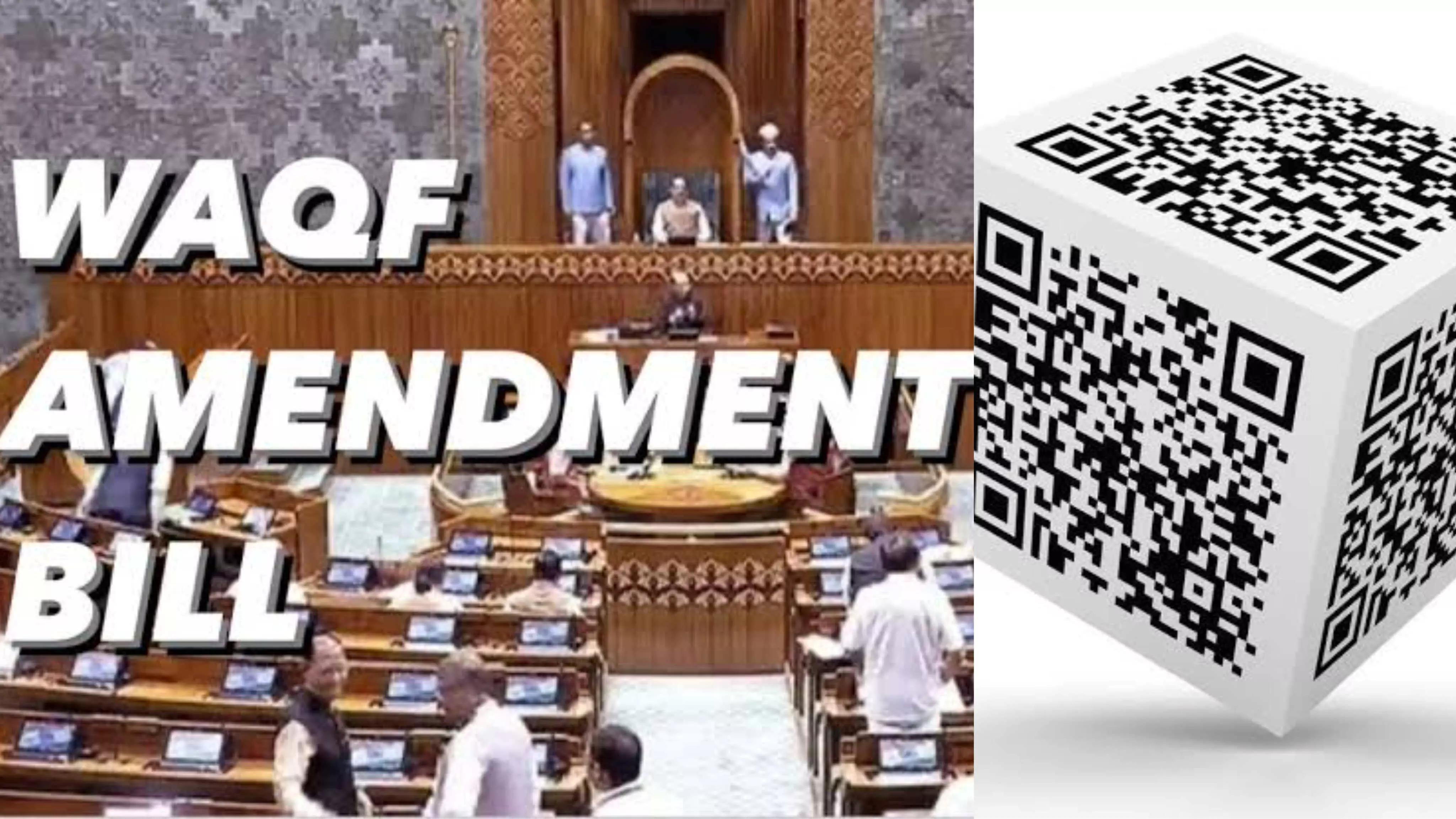Waqf Amendment Bill: QR code strategy to register protest against bill causes widespread confusion
The last date for sending suggestions and objections to joint parliamentary committee for Waqf Amendment Bill 2024 is September 13
By Kaniza Garari
Hyderabad: A QR code strategy to generate numbers for the support (or opposition) to the Waqf Amendment Bill-2024 has created major confusion in the Muslim community in Hyderabad.
The Waqf Amendment Bill was introduced in Parliament on August 8. It was referred to a Joint Parliamentary Committee after it generated considerable opposition from the public.
Race against time
The last date for sending the suggestions and objections to the bill is September 13. Telangana was the first State in the country to reject the bill.
In a statement released on August 26, the state Waqf committee made it clear that the bill is not in the interest of the Muslim community and is a systematic effort to weaken and dilute the Waqf tribunal.
What is the confusion on the QR strategy?
The strategy involved an organisation, which is against the Waqf amendment, generating and sharing a QR code in public. Once scanned, the QR code would register their protest against the bill and send it to the Joint Parliamentary Committee through a draft letter from the scanner’s email.
Although simple in theory, the strategy left many confused in implementation.
The issue began with multiple organisations against the bill generating their own QR codes and distributing them. This resulted in multiple QR codes generating different contents explaining the need to reject the bill.
As per sources, many individuals ended with as many as 20 codes serving the same purpose but generated by different organisations.
To add to the confusion, organisations supporting the bill also generated their own versions of codes. Many who could not tell the difference in the codes have sent representations supporting and also rejecting the bill.
This confusion has caused considerable concern among the community who are worried about misrepresentation of their voice due to confusion in the usage of technology.
‘41 proposed amendments faulty’
Telangana Waqf chairman Syed Azmatullah Husseini, Member of Parliament and board member Asaduddin Owaisi and others pointed out that they have rejected the 41 proposed amendments as they are detrimental to Muslims.
There are over 20 crore Muslims in India and 80 per cent of them are against the Waqf Amendment Bill, according to the organisations spearheading the ‘Reject Waqf Amendment Bill’ proposal.
But were they all able to send their objections to the committee?
The QR code would allow them to draft a letter of rejection and send it from the scanner’s email ID to the JPC. This was aimed to save time to generate content and draft objections from each person.
“But what we have found now is that all the organisations have generated QR codes. This has led to confusion as people are getting different codes and they don’t know what to do,” explained a source.
QR code for Waqf Amendment Bill adds to confusion
Those who are in support of the Waqf Amendment Bill have also joined now with QR codes and they are also circulating the same on WhatsApp.
They also want the email for the bill to reach the Joint Parliamentary Committee. However, people who are against the bill have also ended up clicking on the QR code in support of the bill, leading to a hue and cry in the community.
People advised caution
People are now counselled to click on the QR code which is sent from official handles of Muslim organisations rejecting the bill. They are also being told to be wary of those codes which have been generated by organisations which are unknown to them or whose stand is not clear to them.
ASI on Waqf bill
The stand taken by the Archaeological Survey of India (ASI) for the Waqf Amendment Bill has come as a shock to the community. ASI is said to have informed the JPC that there are 130 historical properties in Waqf lands. There will be fresh scrutiny of these properties in the new provisions of the bill.
The bill has become a bone of contention as it is being viewed as trying to take away the properties of Muslims.